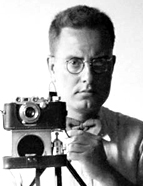

Having lost the incentive of his Parisian masters and fellow scholars (except for rare and brief contacts of a clandestine nature), Orlando Ribeiro received the excellent support of his Spanish fellow scholars thus realising how important it was to position Portugal’s personality within the Iberian context and, more widely, within the Mediterranean context. This is clearly perceptible in the title he chose for his first book, still renowned today: Portugal, o Mediterrâneo e o Atlântico [Portugal, the Mediterranean and the Atlantic], published in Coimbra in 1945. In fact, while it is true that this work deals mainly with Portugal, its title points to two broad future syntheses, which had been long in the making: both the book Mediterrâneo, Ambiente e Tradição [Mediterranean, Environment and Tradition], published by Fundação Calouste Gulbenkian [Calouste Gulbenkian Foundation] in 1968, and La Zone Intertropicale Humide [The Humid Intertropical Zone], in co-authorship with myself, and edited by Armand Colin, in 1973.
With the end of World War II in September 1945, the elderly Professor De Martonne, President of the Associação Internacional de Geografia [International Association of Geography] since 1938, tried to maintain the much-threatened intellectual predominance of a ruined and divided Europe. To that end, he encouraged his young Portuguese disciple to take up the difficult task of swiftly organising the first post-war International Congress of Geography in Lisbon. Orlando Ribeiro rose bravely and efficiently to this challenge and the international congress was held to everyone’s satisfaction in April 1949, leading to a wealth of important publications (5 volumes of Comunicações [Papers] and 6 Livros Guias de Excursões [Excursion Guidebooks]).
This success was largely due to the enthusiasm of a small group of young researchers from diverse specialisations, mostly doctoral students, belonging to the Centro de Estudos Geográficos [Centre for Geographical Studies] of the University of Lisbon (CEG-UL). Their sole support, albeit symbolic, came from renowned admiral Gago Coutinho and, at the administrative level, the efficient aid of Herculano Amorim Ferreira, a physicist who had just created the Portuguese Weather Service. Five excursions were made to present the diverse regions of the Continent, and the Congress was held in Lisbon between 8th and 15th April; it was then prolonged by a trip to Madeira Island where some of the illustrious guest speakers were joined by the young people whose enthusiasm had made it possible to successfully manage this difficult international challenge.
